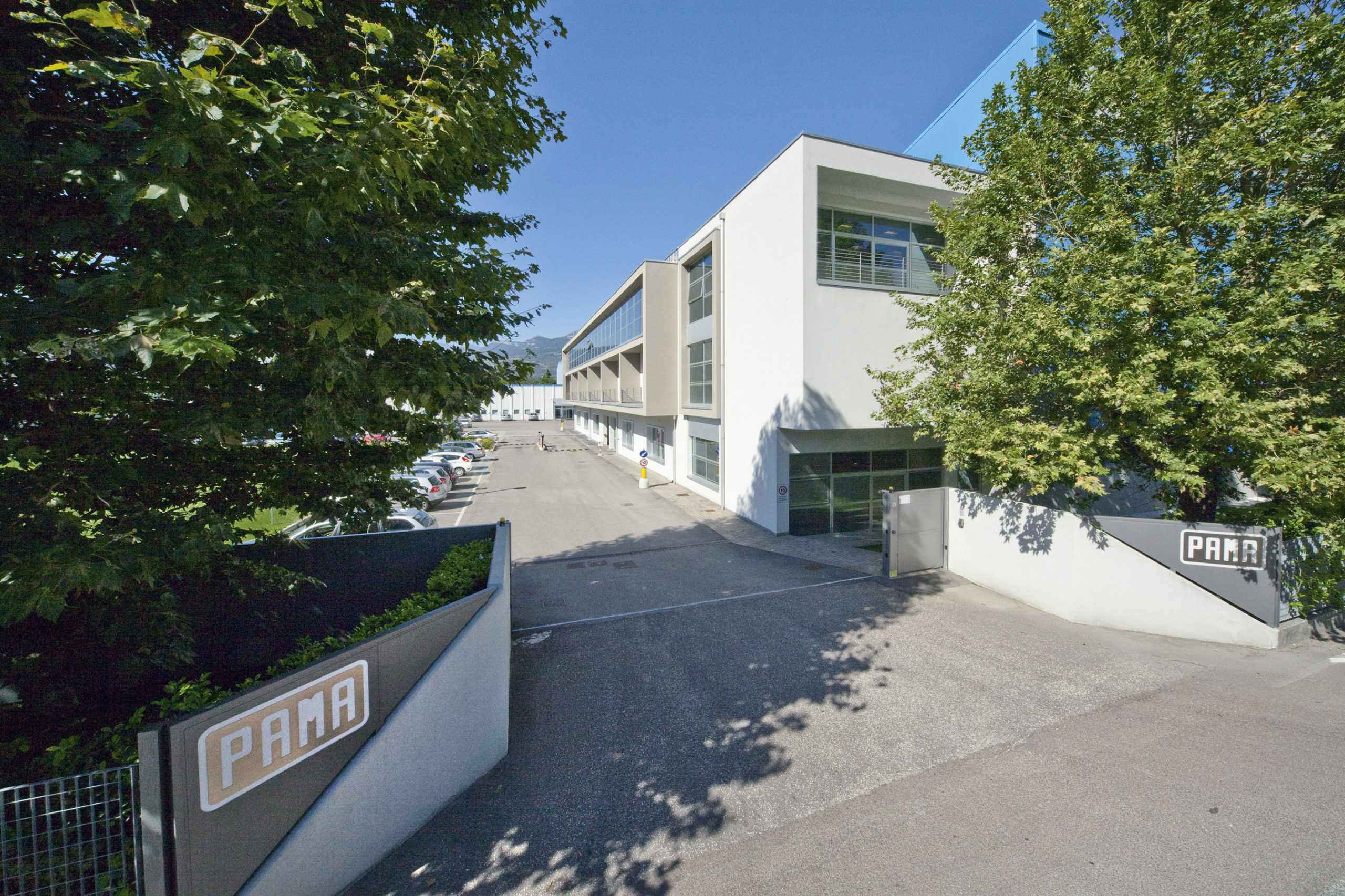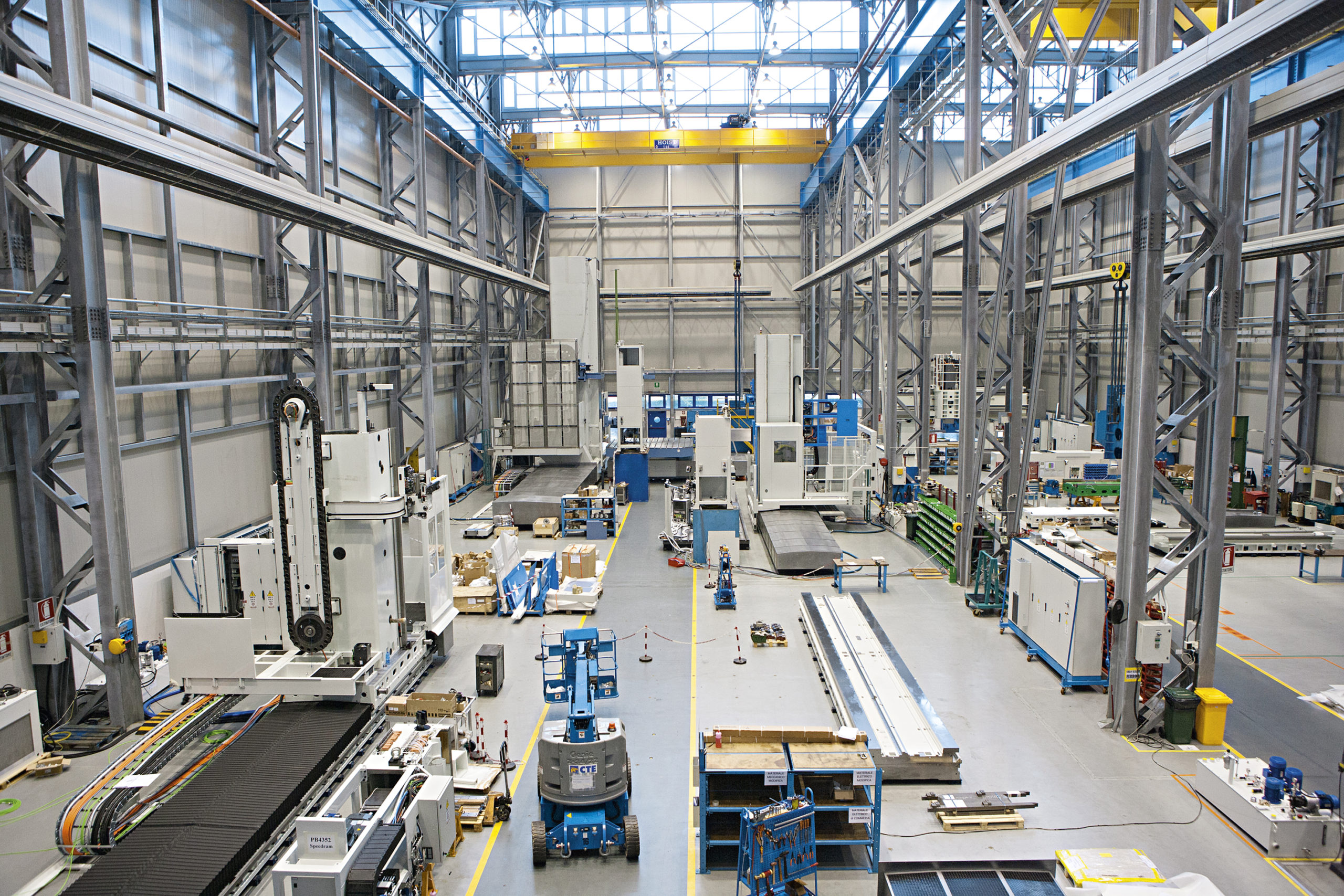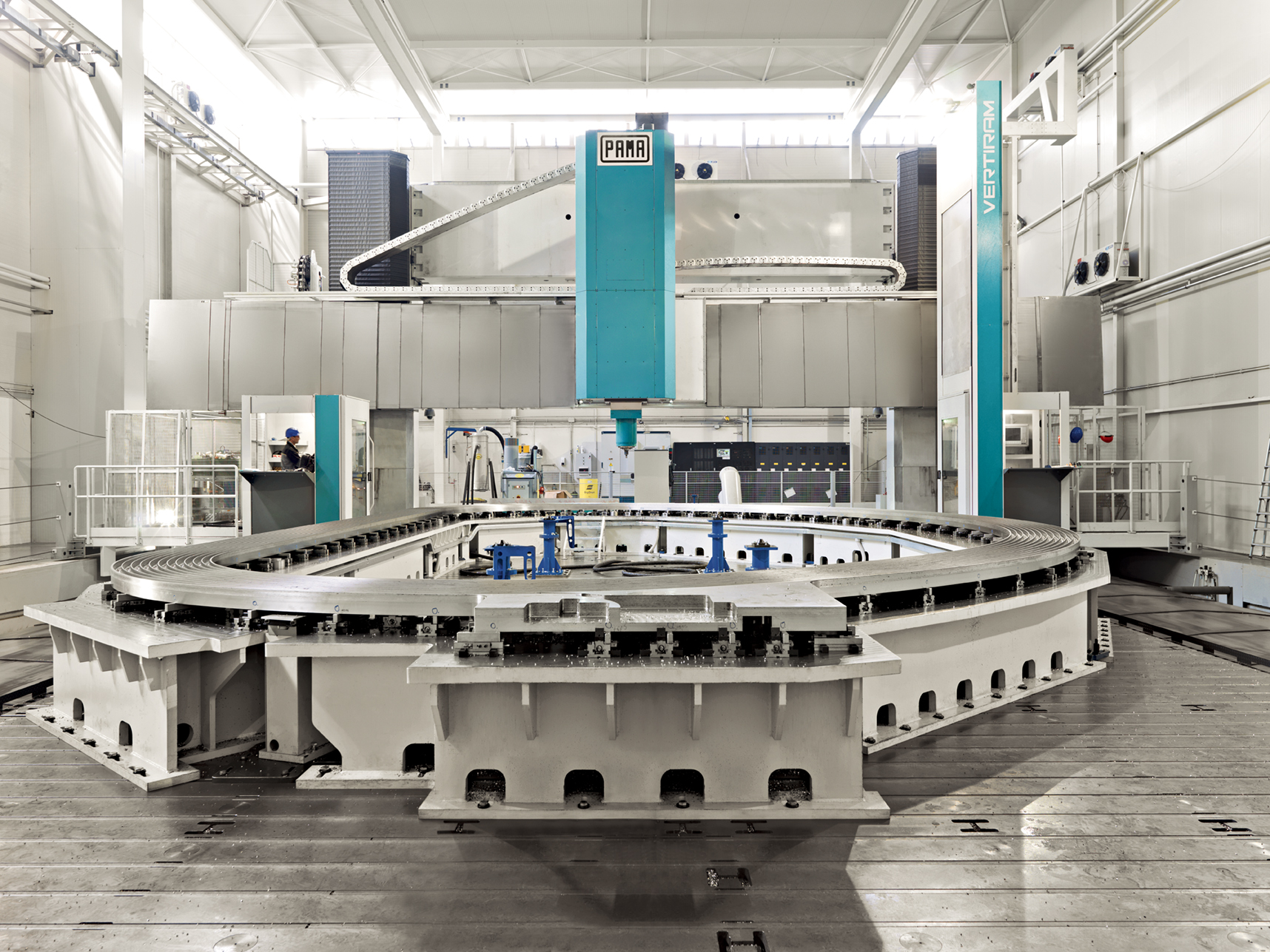
PAMA S.p.A. has been in the machine tool market for more than 90 years and has a wealth of experience and enviable know-how in boring machines and milling centers. It operates globally: its main markets are Asia, the Americas, Europe and Italy, all of which are extensively backed by a network of sales and support structures.
PAMA has established itself on a worldwide level resulting from the tradition and technological excellence of its products that, as of today, comprise a wide range of machine tools and related services: horizontal and vertical milling and boring machine, machining centres, head attachments, automation and technology services.
PAMA S.p.A. has three modern production sites with cutting-edge infrastructure, two of which are at PAMA Italy in Rovereto and Brescia, and one is at PAMA China in Shanghai (dedicated to the local market).

PAMA S.p.A. has an integrated company structure for the design, development and production of its products:
- Its technical offices are staffed by a highly qualified team with considerable experience in developing all components of the product
- The mechanical machining of all the main structures is performed in-house using PAMA boring and milling machines and machining centres
- Assembly activities are organised into specialised areas dedicated to the assembly of functionally complete modules; after careful tests, the various machine units are sent to the final assembly areas
All the industrial processes are defined, planned and continuously optimised within the scope of an improvement project. Moreover, continuous quality checks are performed during the various machining stages to guarantee high precision and reliability standards.
PAMA currently is capable of collecting relevant process data and sensor signals from its machines, aiming the generation of value both for the customer and the company.

The AIDEAS project represents a valuable opportunity to assess state of the art AI technology on relevant applications that covers the whole lifecycle of the machine tool. In the design stage, the analysis of the real utilization data is exploited to provide tailored machine to customers. In the manufacturing stage, AI tools aims the reduction of intermediate quality check, by guaranteeing the same quality at first pass. For what concerns the use stage, AI toolkits are exploited on the one hand to compensate thermal deformation and elongation given by internal heat sources (e.g. spindle and drives) to increase the precision and reliability. On the other hand, the machine components and energy absorption status are classified aiming the evaluation of deterioration and failure and the optimization of the energy consumption respectively. Finally, AI tools for the repair/reuse/recycle phase aims at first the estimation of the useful life of key components, enabling the predictive maintenance of the system. Then, the better end-of-life strategy to minimize energy and environmental impact is assessed handled.
Overall, AIDEAS introduces toolkit that take part in the enhancement of the global efficiency of the product lifecycle, enabling circular-manufacturing.




